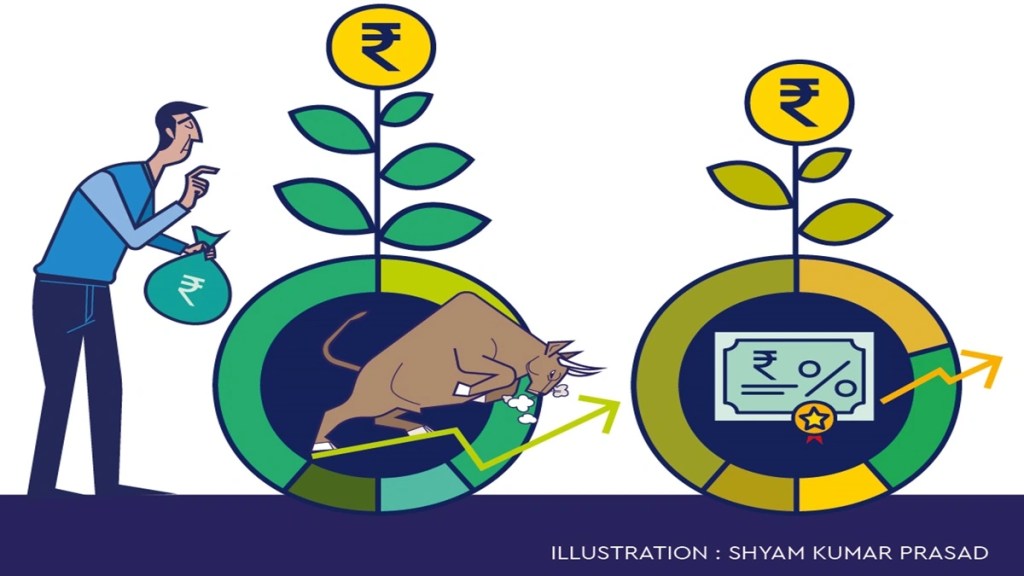Investors should look at debt funds as instruments that offer instant liquidity and not solely from the tax efficiency angle, believes Kalpen Parekh, MD and CEO of DSP Mutual Fund. He tells
Siddhant Mishra that open-ended debt funds allow investors to take advantage of interest rate cycles, which other products like fixed deposits (FDs) don’t. Excerpts:
Are you planning to launch new products following the removal of the indexation benefit?
We’re not planning any new product launches; we already have close to 40 funds across fixed income, equity, hybrid of equity and fixed income, as well as a mix of equity, fixed income, and global. Rejigging existing products in line with the tax changes is what we could consider.Largely, the two categories investing in fixed income are corporate treasuries and HNIs — given these are the ones in the higher tax bracket. The impact is not much on those falling in the lower tax brackets, like retail investors.
Also, this segment doesn’t largely invest in fixed income; but rather in fixed deposits or bonds. A significant portion of corporate treasury money came into fixed income as it offered instant liquidity. Open-ended debt funds allow investors to take advantage of interest rate cycles, which fixed-rate products like FDs don’t. That advantage remains, which is also why the money coming in earlier wasn’t necessarily with a three-year view.
Could investors’ strategies see a change hereon?
Some part of this money could incrementally flow into fixed income via hybrid funds, as they have between 30% and 60% in the category. A hybrid fund still has better tax efficiency than debt funds, which could allow one to maintain their asset allocation and risk profile, with the right tax efficiency.However, the message for investors beyond tax efficiency is that debt funds give you real-time liquidity allowing one to withdraw money within a day. This is not available in other long-term products.
Will this increase challenges in terms of corporate funding? What will be the impact on the bond market?
Money doesn’t come into debt funds at the same scale. It will go to some other segment like banks, or investors may directly buy bonds.In the case of direct bond purchases, the issuers will take advantage. In case of banks, their balance sheets will rise and they’ll deploy more cash for credit. This won’t have a material impact on funding needs, as only the tax structure has been equalised.
Is a shift to actively managed funds by investors likely?
Personally, I have been a firm believer of actively managed funds in fixed income as there is a reasonably wide interest rate range that Indian bonds move in, every five years.
For instance, the 10-year G-Sec trades at 6% in a low cycle and goes up to 9% during a high cycle.The range has been from 5-9%, which creates a lot of opportunities for active fund managers to take advantage of this volatility and deliver better returns. I hope the trend towards active schemes picked up, especially at a time when interest rates have picked up over the last two years.
This offers a chance to build a good
portfolio that will benefit an investor over the next two years once the rate hike cycle turns.
Will any further rate hikes only add to pressure on the debt category?
Rising rates are good for those who want to park their money, as future returns will be better. Eighteen months back, our money market funds would have gone at 3 or 3.5%, while today our money market portfolio is deployed at 7.8%, which is more than double the yield. Interest rates have to justify the environment of high inflation that we’ve seen, so if investors don’t get compensated for the rising inflation and if bond yields don’t offer real rate of returns, there is no strong reason to come into debt funds. The right investors will take advantage of the rising rates.
Your views on the ESG theme and any new products that you may be planning?
It’s too early to form a view on this segment. ESG as a segment has been more appealing to international investors because the concept is more nuanced outside. Also, global capital needs funds to be managed with more serious ESG discipline.
These trends are just picking up in India.We have a dedicated ESG specialist too to help score companies on the three parameters — environment, social, and governance. It’s a matter of gradual evolution in this space.

